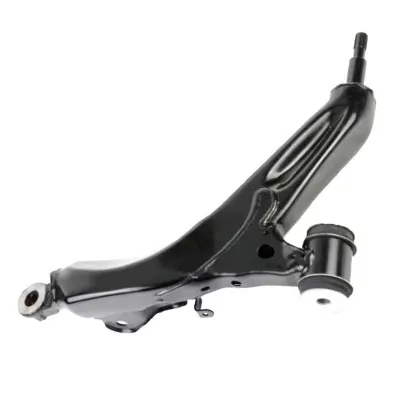
-
 Afrikaans
Afrikaans -
 Albanian
Albanian -
 Amharic
Amharic -
 Arabic
Arabic -
 Armenian
Armenian -
 Azerbaijani
Azerbaijani -
 Basque
Basque -
 Belarusian
Belarusian -
 Bengali
Bengali -
 Bosnian
Bosnian -
 Bulgarian
Bulgarian -
 Catalan
Catalan -
 Cebuano
Cebuano -
 Corsican
Corsican -
 Croatian
Croatian -
 Czech
Czech -
 Danish
Danish -
 Dutch
Dutch -
 English
English -
 Esperanto
Esperanto -
 Estonian
Estonian -
 Finnish
Finnish -
 French
French -
 Frisian
Frisian -
 Galician
Galician -
 Georgian
Georgian -
 German
German -
 Greek
Greek -
 Gujarati
Gujarati -
 Haitian Creole
Haitian Creole -
 hausa
hausa -
 hawaiian
hawaiian -
 Hebrew
Hebrew -
 Hindi
Hindi -
 Miao
Miao -
 Hungarian
Hungarian -
 Icelandic
Icelandic -
 igbo
igbo -
 Indonesian
Indonesian -
 irish
irish -
 Italian
Italian -
 Japanese
Japanese -
 Javanese
Javanese -
 Kannada
Kannada -
 kazakh
kazakh -
 Khmer
Khmer -
 Rwandese
Rwandese -
 Korean
Korean -
 Kurdish
Kurdish -
 Kyrgyz
Kyrgyz -
 Lao
Lao -
 Latin
Latin -
 Latvian
Latvian -
 Lithuanian
Lithuanian -
 Luxembourgish
Luxembourgish -
 Macedonian
Macedonian -
 Malgashi
Malgashi -
 Malay
Malay -
 Malayalam
Malayalam -
 Maltese
Maltese -
 Maori
Maori -
 Marathi
Marathi -
 Mongolian
Mongolian -
 Myanmar
Myanmar -
 Nepali
Nepali -
 Norwegian
Norwegian -
 Norwegian
Norwegian -
 Occitan
Occitan -
 Pashto
Pashto -
 Persian
Persian -
 Polish
Polish -
 Portuguese
Portuguese -
 Punjabi
Punjabi -
 Romanian
Romanian -
 Russian
Russian -
 Samoan
Samoan -
 Scottish Gaelic
Scottish Gaelic -
 Serbian
Serbian -
 Sesotho
Sesotho -
 Shona
Shona -
 Sindhi
Sindhi -
 Sinhala
Sinhala -
 Slovak
Slovak -
 Slovenian
Slovenian -
 Somali
Somali -
 Spanish
Spanish -
 Sundanese
Sundanese -
 Swahili
Swahili -
 Swedish
Swedish -
 Tagalog
Tagalog -
 Tajik
Tajik -
 Tamil
Tamil -
 Tatar
Tatar -
 Telugu
Telugu -
 Thai
Thai -
 Turkish
Turkish -
 Turkmen
Turkmen -
 Ukrainian
Ukrainian -
 Urdu
Urdu -
 Uighur
Uighur -
 Uzbek
Uzbek -
 Vietnamese
Vietnamese -
 Welsh
Welsh -
 Bantu
Bantu -
 Yiddish
Yiddish -
 Yoruba
Yoruba -
 Zulu
Zulu
Understanding the Importance of Bent Control Arm in Vehicle Performance and Safety
Understanding Bent Control Arms Causes, Effects, and Solutions
A control arm is a crucial component of a vehicle's suspension system, connecting the wheel hub to the vehicle's chassis. Its primary function is to allow for controlled movement of the wheels, ensuring stability and handling during driving. However, a bent control arm can significantly affect a vehicle's performance, safety, and overall drivability. Understanding the causes, effects, and solutions to a bent control arm is essential for any vehicle owner.
Causes of Bent Control Arms
Bent control arms often result from heavy impacts or collisions. Common scenarios include hitting potholes, curbs, or debris on the road. In high-speed situations, even minor obstacles can exert substantial force, bending the control arm. Additionally, improper installation or poor-quality aftermarket parts can lead to structural integrity issues over time, making the component more susceptible to bending under stress.
Effects of a Bent Control Arm
A bent control arm can lead to several performance issues. One immediate effect is misalignment of the wheels, causing abnormal tire wear and reducing the tires' lifespan. Drivers may also notice increased steering vibration, pulling to one side, and a decrease in overall handling stability. If left untreated, these issues can escalate, affecting brakes and other suspension components, leading to costly repairs.
bent control arm

Moreover, a compromised control arm poses a significant safety risk. The suspension system is designed to keep the vehicle stable during maneuvers, and a failure in this system can lead to loss of control while driving. Such a scenario can result in accidents, making timely intervention critical.
Solutions for Bent Control Arms
If you suspect that your vehicle has a bent control arm, it's advisable to seek a professional inspection. A mechanic can assess the degree of damage and determine whether repair or replacement is necessary. In some cases, a slight bend might be corrected through realignment or bending back. However, severe damage typically requires replacement.
Choosing high-quality replacement parts is crucial to prevent future issues. OEM (Original Equipment Manufacturer) parts are generally recommended for their reliability and durability, ensuring that the suspension system performs optimally.
In conclusion, recognizing the signs of a bent control arm and addressing the problem promptly can enhance your vehicle's performance and safety. Regular maintenance and careful driving can minimize the risk of bending control arms, helping to keep your vehicle running smoothly for years to come.







